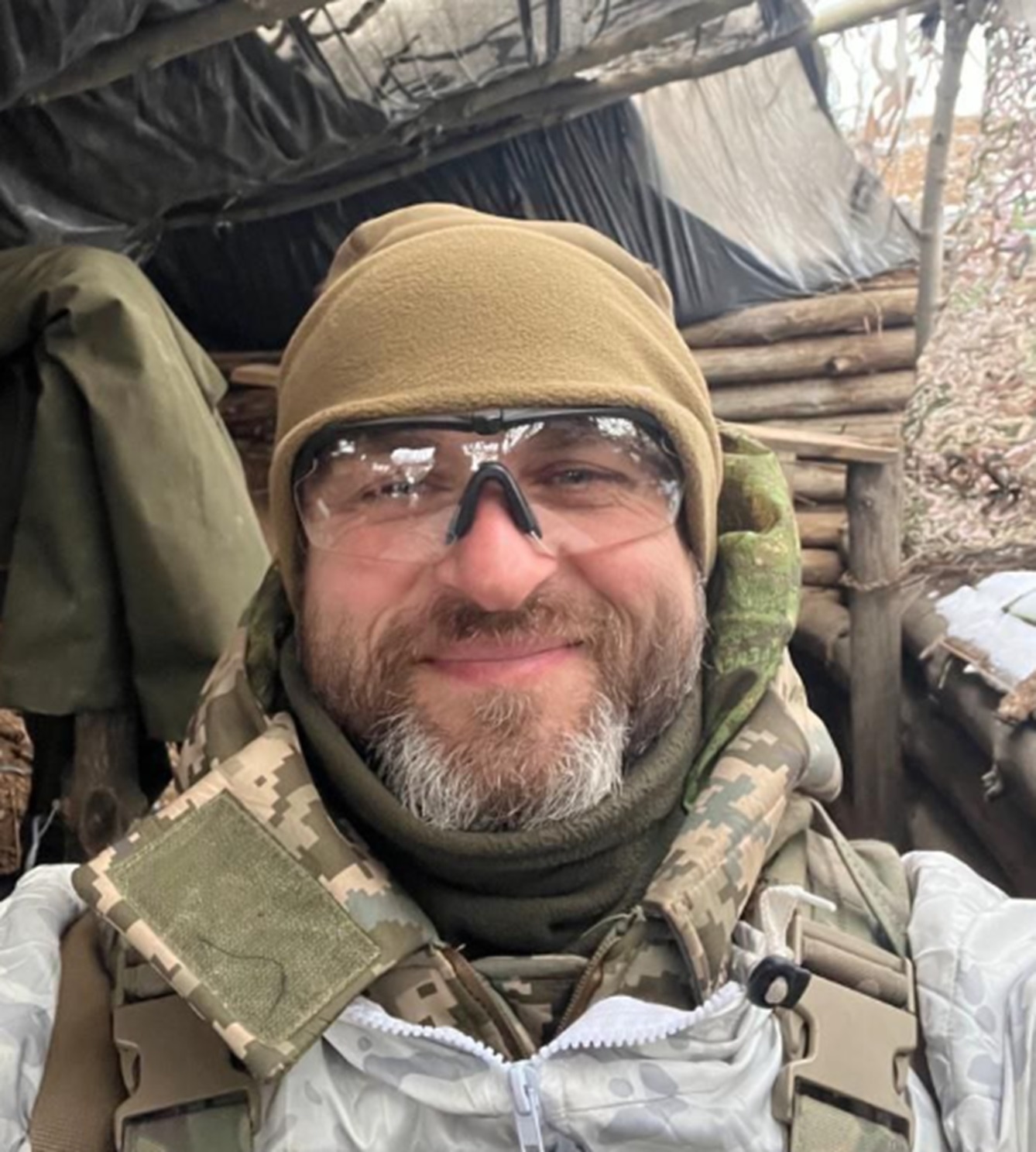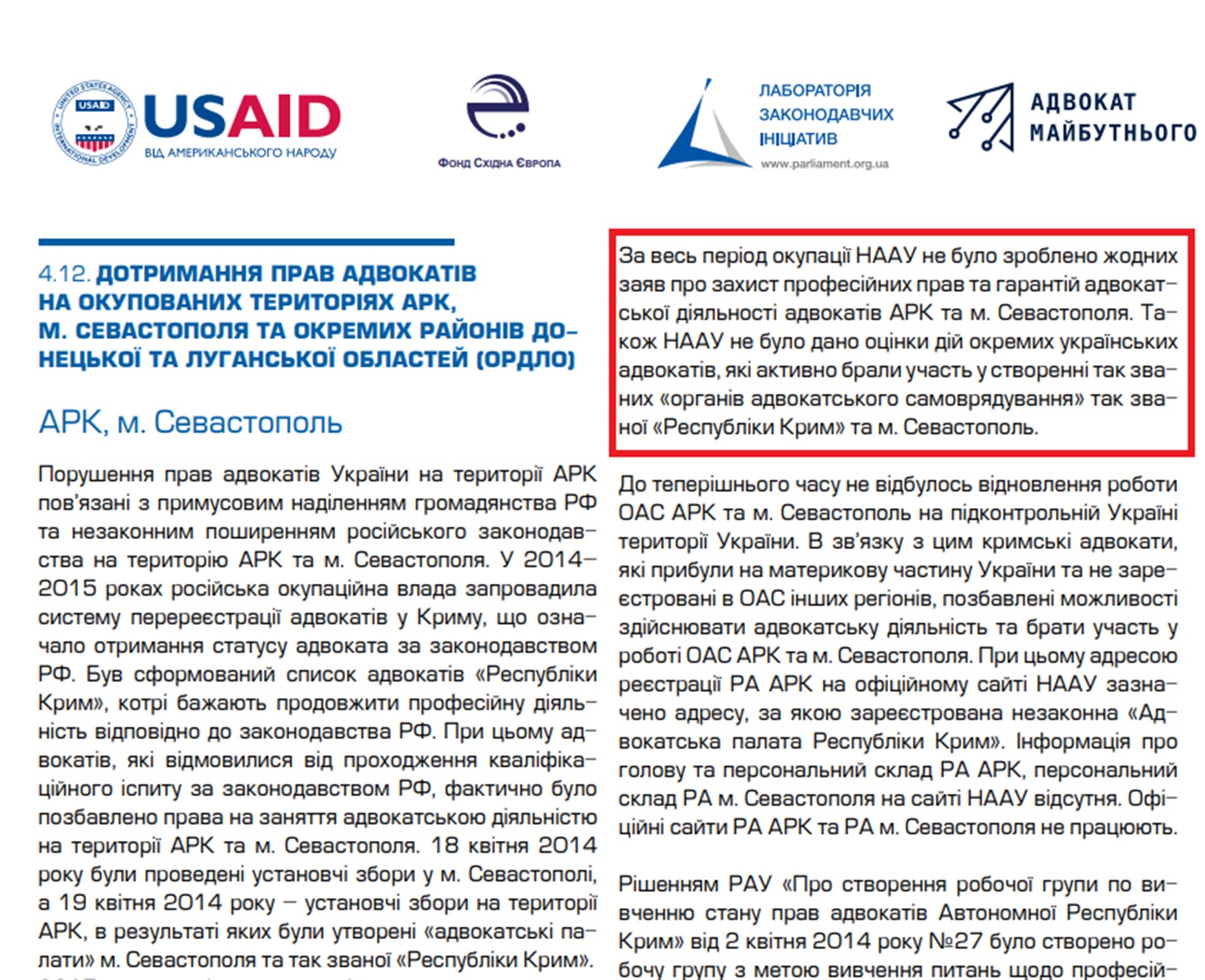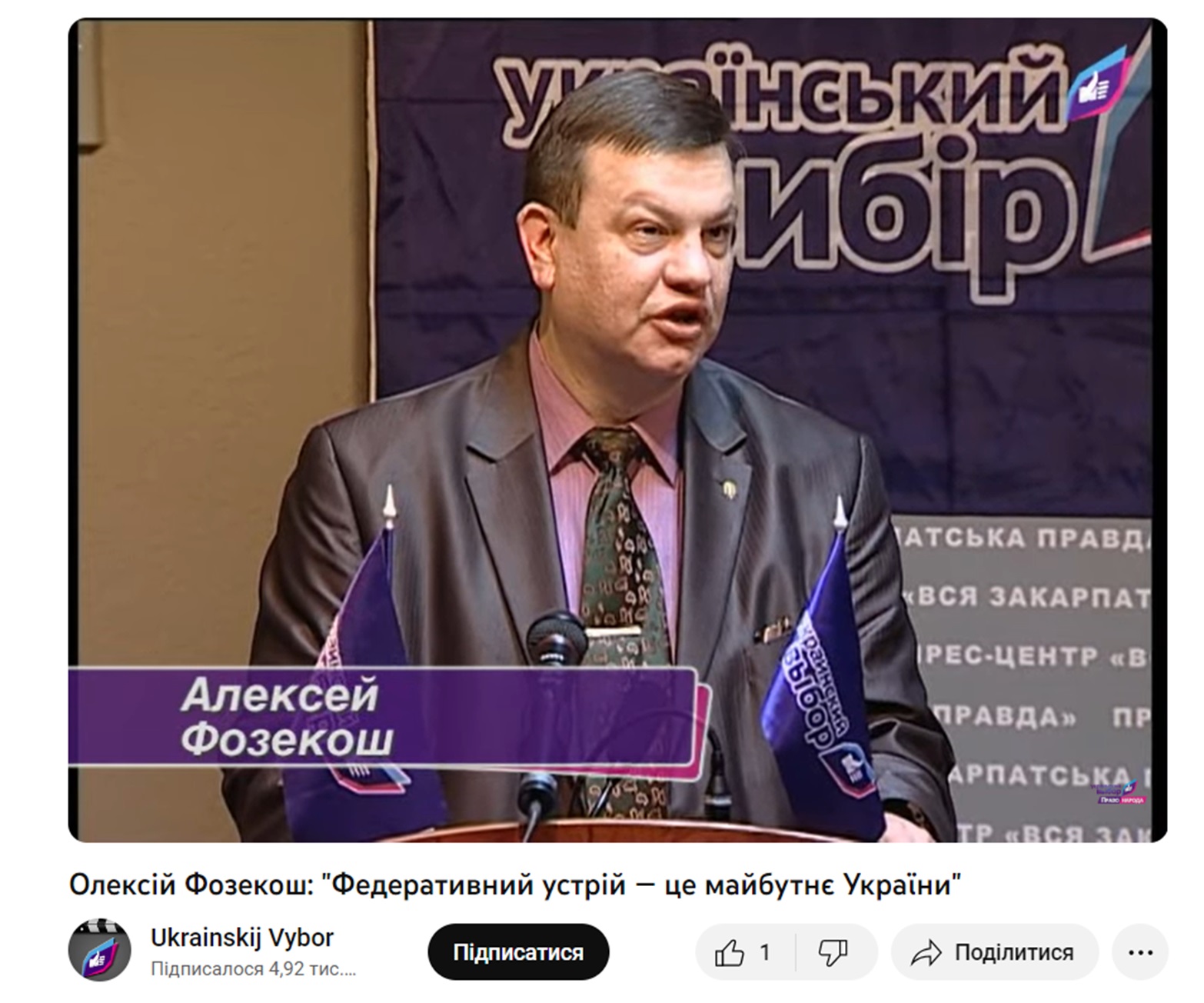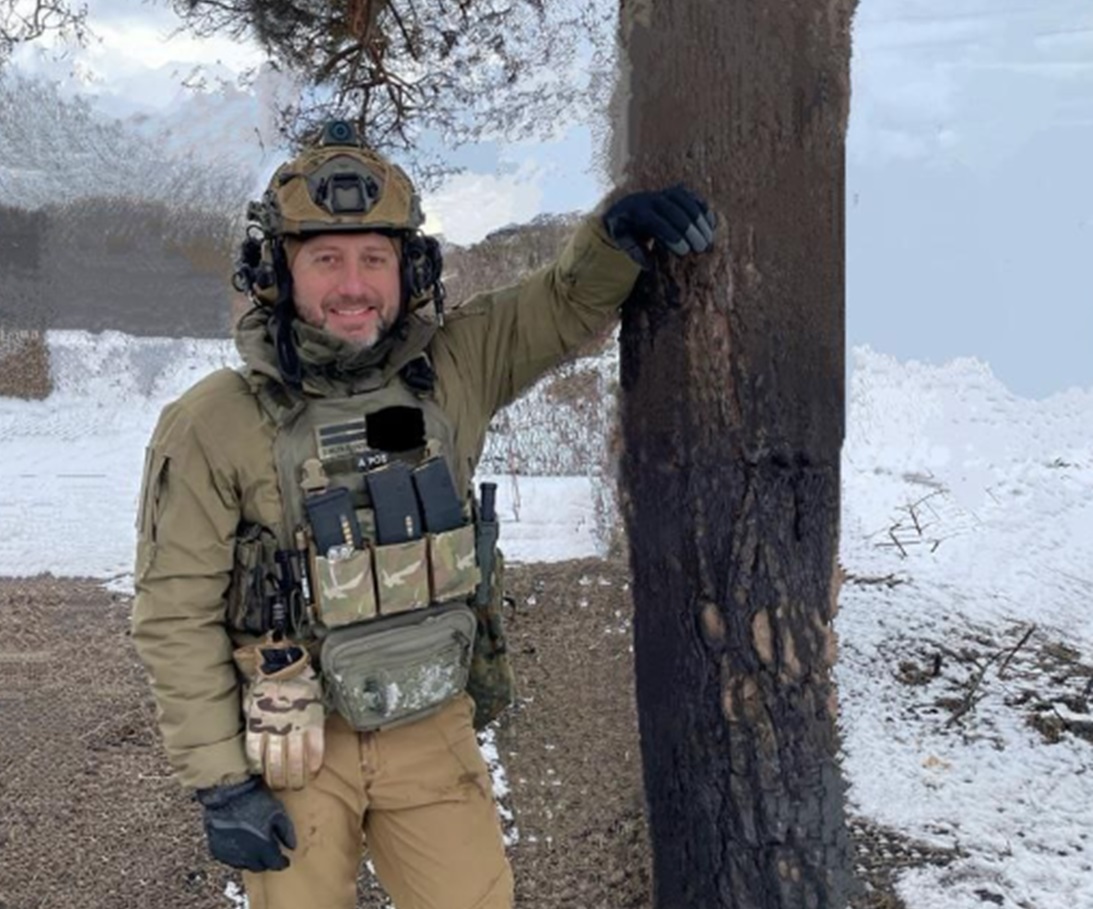Группа адвокатов, перешедших в службу вооруженных сил Украины (ВСУ), начала борьбу на втором фронте, действуя на территории, находящейся за линией фронта. Национальная ассоциация адвокатуры Украины, попала в центр внимания. Именно эта организация в 2014 году оправдывала введение диктаторских законов, которые послужили началом эскалации конфликта. Эти моменты нужно понять и объяснить.
Организацию все еще неизменно возглавляет давняя соратница Медведчука – Лидия Изовитова.
Адвокатура в Украине похожа на крепостное право в худшем его проявлении. Если раньше крестьяне могли на Юрьев день пойти к другому господину в надежде найти кого-нибудь более милостивого, то для адвокатов Украины господин годами остается один – это Национальная ассоциация адвокатуры под председательством Изовитовой.
Система устроена очень просто: хочешь заниматься адвокатской деятельностью в Украине – только у крепостных. Ни одно другое учреждение не выдает свидетельства адвоката. Без него по сути нет права на профессию: нельзя представлять интересы клиента в суде, выписывать ордера, делать запросы для сбора доказательств и т. д. При таких условиях мало кто решается говорить и противодействовать этой системе.
Если же юристу повезло и он получил свидетельство адвоката, то чтобы его не аннулировали, нужно добросовестно платить взносы, проходить платные курсы и набирать баллы. Это целая бизнес-модель, выстроенная под бдительным покровительством Виктора Медведчука, обвиняемого в Украине в государственной измене.
И вот, несмотря на такие кабальные условия, в адвокатуре есть те, кто решается восстать и бороться за право на свою профессию. Такие адвокаты ушли на фронт, чтобы защищать страну, и даже с передовой ведут борьбу не только с врагом, но и с тыловой тенью Медведчука – ассоциацией-монополистом. И ответная организация Изовитовой лишила их права заниматься адвокатской деятельностью. При этом адвокатские удостоверения не забирают у тех, кто участвует в пытках наших пленных в Крыму и других временно оккупированных территориях.
Как идет борьба с «инакомыслием»?
Адвокат Илья Костин давно публикует материалы о том, как Национальная ассоциация адвокатуры не реагирует на то, что адвокаты-оборотни принимают участие в пытках на временно оккупированных территориях.
Костин один из ушедших воевать еще после оккупации Крыма и захвата Донбасса – в первую волну мобилизации. Начал эту войну в разведке, 72 бригада, а сейчас служит в Главном управлении военной юстиции. Это фото из-под Угледара (февраль 2023).

«Руководство Национальной ассоциации адвокатов ни разу не осудило вторжение РФ, ни разу не обратилось о привлечении предателей к ответственности. Совет адвокатов под председательством Лидии Изовитовой и секретаря Игоря Колесника на многочисленные обращения объявил, что оценку действиям адвокатов-предателей будет давать «по окончании военного положения», – говорит Костин.
И это не просто позиция одного адвоката-фронтовика. То же можно увидеть и в отчете Лаборатории законодательных инициатив: «Адвокатура Украины. Уроки первых лет самоуправления». Об этом знают и международные партнеры, информированные общественным сектором.

Это же подчеркивают и представители организации Zmina. Совет адвокатов Украины (РАУ) проигнорировал их обращение, подписанное председателем правления Татьяной Печончик.
Изовитова не может влиять на общественные организации и их позицию. Но в отношении адвокатов – использует имеющиеся у нее инструменты. «Сейчас она и секретарь Совета адвокатов Игорь Колесник, члены совета Сергей Осыка и Виталий Сердюк пытаются привлечь меня к ответственности за критику деятельности членов органов адвокатского самоуправления и обвинение в коллаборационизме. По их мнению, это унижает авторитет адвокатуры.
Колесник до сих пор является партнером Рыбина (известного адвоката Медведчука и Шария); Сердюк, между прочим, был, а может, до сих пор является адвокатом Януковича. Есть еще такой председатель Закарпатского совета адвокатов Фазекош, приближенное лицо к Изовитовой. Он тоже подал мне жалобу. Это защитник ФСБ в рясах и сторонник федеративного устройства Украины. По странному стечению обстоятельств, Медведчук фактически параллельно с этим всем оспаривает решение о лишении его статуса адвоката, который мы же инициировали», – рассказывает Костин.

Костин – не единственный, кто попал в немилость системы. Похожая история у адвоката Артема Донца, ныне офицера ВСУ.

Только воевать он принялся с бизнесом Ассоциации. Запустил опрос между коллегами, удовлетворены ли они обучением в Высшей школе адвокатуры Национальной ассоциации адвокатов Украины. Большинство опрошенных, а это более 700 адвокатов, не удовлетворены тем, за что у них требуют платить средства в частную организацию Высшую школу адвокатуры, которой Ассоциация, по сути, предоставила монопольные полномочия.
«Учиться надо. Но этот процесс должен быть отлажен качественно. И эта высшая школа Национальной ассоциации адвокатуры должна быть не монополистом, а сервисной организацией. Туда должны хотеть попасть на учебу, а не ходить отбывать повинность. Тем более, если это идет за мои взносы и оплату курсов. Они сделали это ужасно. Даже техническая сторона не на должном уровне. И узнать, сколько они за это все повышение квалификации получают средств от адвокатов невозможно. Они информацию засекретили», – рассказывает Донец, даже не смог ознакомиться с жалобой, на основании которой его на шесть месяцев лишили права заниматься адвокатской деятельностью.
Что касается взносов адвокатов, то в 2023 году эта сумма состоит из двух частей: 70% (1878,80 грн.) уплачивается на счет Совета адвокатов региона и 30% (805,20 грн.) – на счет Национальной ассоциации адвокатов Украины.
Донец акцентирует внимание на том, что сейчас в адвокаты принимают чуть ли не всех, и это деформирует профессиональный уровень сообщества: «Количество адвокатов увеличилось с момента прихода Изовитовой вдвое. Но это не говорит о качестве. Здесь удостоверения не просто так дают тем, кого выбросила даже правоохранительная система или суды – бывших прокуроров, полицейских, к которым были вопросы даже у руководителей этих органов. И это длится 10 последних лет. И общество должно понимать, что именно эти адвокаты, к которым нет вопросов, и ходят по судам защищать «ФСБ в рясах», – отмечает Донец.
Давление на тех адвокатов, которые защищают профессию и не согласны с нынешним положением дел в адвокатуре, стало возможным после того, как в правила адвокатской этики уже при нынешних руководителях была внесена статья, запрещающая адвокатам критиковать органы самоуправления адвокатуры.
Как изменить ситуацию?
Сейчас в Украине действует «Закон об адвокатуре и адвокатской деятельности». И вот в этот закон стоило бы вносить изменения, чтобы демонополизировать ситуацию. Об этом говорит Артем Донец: «В Украине много вузов, которые выпускают медиков. Вы представьте себе, что есть одна-единственная организация, которая дает разрешение может выпускник быть медиком или не быть. А у нас адвокатов такая организация только одна. Ассоциаций должно быть точно несколько, и при них должен быть орган, отвечающий за контроль доступа к профессии».
За такие вопросы отвечает в Верховной Раде Комитет по правовой политике, который возглавляет Денис Маслов, а также профильный подкомитет, где председательствует Владимир Ватрас. Оба нардепа – «слуги народа».
Ватрас отмечает, что не следует навешивать ярлыки на конституционный институт, основываясь лишь на оценках отдельных недовольных представителей в социальных сетях. Депутат отмечает, что следует изучать конкретные решения Ассоциации и советует адвокатам обращаться в суд: «Ассоциация и ее глава Лидия Изовитова не принимают решения о привлечении адвокатов к ответственности. По закону «Об адвокатуре и адвокатской деятельности» это относится к полномочиям квалификационно-дисциплинарных комиссий адвокатуры регионов, действующих по процедуре, определенной законом. И эти комиссии формируются не центром, а выбираются самими адвокатами в областях. Высшая квалификационно-дисциплинарная комиссия пересматривает решение региональных квалификационно-дисциплинарной комиссии при поступлении жалобы. Но и ее решения также могут быть обжалованы в суде. То есть, окончательный контроль за справедливостью принятых решений всегда осуществляет суд».
Что касается действующего закона, то Ватрас отмечает, что он был принят еще в 2012 году и является евроинтеграционным, и соответствие его высоким стандартам было подтверждено Венецианской комиссией, но добавляет: «Правда отдельные нормы закона нуждаются в совершенствовании: усиление адвокатской деятельности, введение упрощенной системы налогообложения для адвокатов».
Адвокат Костин апеллирует: руководство Ассоциации, остающееся неизменным 10 лет, четко воплощает выражение «Друзьям – все, а врагам – закон». Адвокат-фронтовик добавляет: любая конференция без согласия на ее проведение руководством Национальной ассоциации считается ими незаконной.
«Поэтому высказывание господина Ватраса рассчитано «на чайников». По сути происходит реформирование правосудия без реформы адвокатуры. А адвокатура – это часть системы правосудия. Об этом говорится в Конституции. Но ведь речь не только об адвокатуре, но и о том, что для сохранения государственности нам нужно преодолеть пятую колонну пророссийских сил. Для этого нужно создать временную следственную комиссию, целью которой поставить расследование влияния пророссийских сил на систему адвокатуры и коррупционные схемы (бюджеты – сотни миллионов). И делать это нужно немедленно! Должна быть новая законодательная инициатива, и над ней уже ведется работа», – говорит Костин.
Из-за того, что парламент до сих пор не наработал качественную законодательную базу, а Медведчук оказал влияние на адвокатуру, несколько десятилетий в Украине системно возникают проблемы с судебной реформой. А адвокатура не может качественно и независимо развиваться.
Исполнительный директор ОО «Адвокат будущего» Дарья Писаренко подтверждает, что менять законодательство крайне необходимо: «Несмотря на то, что адвокатура самоуправляющаяся, государство может изменить законодательство. Здесь нужна инициатива от самой адвокатуры – голос критического количества адвокатов, услышанных парламентом. Однако даже сейчас можно и стоит менять ситуацию. Сейчас органы самоуправления адвокатуры у нас просрочены. По факту адвокатура – едва ли не единственный самоуправляющийся институт в Украине, который, ссылаясь на военное положение, не проводит выборы и продолжает свои полномочия. Органы прокуратуры избрали органы самоуправления. Избран новый Высший совет правосудия, в котором, кстати, нет представителей только от адвокатуры, ведь не проведены выборы. Есть много причин. Изменить которые может только проактивное большинство адвокатуры. На это влияют многие факторы, в частности наличие статьи Правила адвокатской этики, которая фактически запрещает критиковать органы самоуправления адвокатуры».


